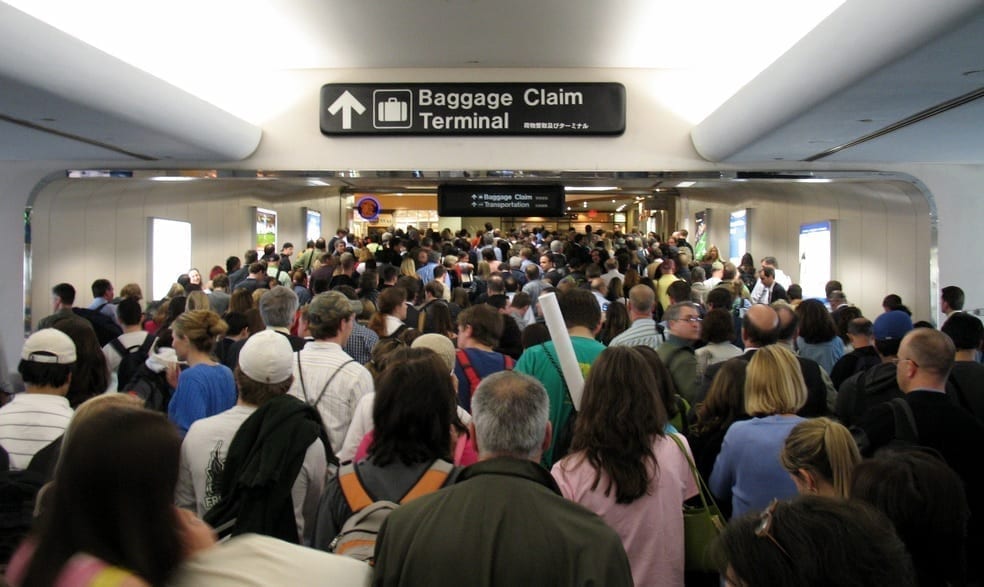Nearly a generation after 9/11, the War on Terror still affects civil rights for American citizens here and around the world.
Two news items that flashed by in the last couple weeks show that the post-9/11 War on Terror still affects civil rights years later.
Consider the compelling case of Bilal Abdul Kareem, born Darrell Lamont Phelps and raised in Mount Vernon, New York. According to a feature story in this month’s Rolling Stone, Kareem converted to Islam and began working as a TV reporter in the Middle East. It was bad enough being culturally American among desperate Syrians, but at least he could fall back on his experience doing stand-up comedy to get through some of the scarier moments. Starting in 2016, that was no longer an option. That’s when Kareem says things “began to explode around him with suspicious frequency.” He survived multiple events that he believes were American drone attacks when he was notified on the down low that he was on the target list.
This is how the War on Terror still affects civil rights for citizens like Kareem. What can a man do under these circumstances, sitting on a de facto Death Row for an unknown crime, with no apparent evidence, no charges filed, no way to challenge the decision? He filed a grievance with the Washington, D.C. District Court in March, 2017, asking to be removed from the “kill list” until he was granted due process. Unable to appear in court, in fear of death at any point along the way, Kareem and another defendant were represented by lawyers in partnership with Reprieve, a London-based human rights organization.
Previously, similar cases have been punted by the judiciary. For example, in Faisal bin Ali Jaber v. Barack Hussein Obama et al., a case regarding the drone-based killing of Salem bin Ali Jaber (an imam who traveled Yemen seeking to prevent radicalization of young men), the Obama justice department argued that the Jaber family lacked standing to question the death. District Judge Ellen Huvelle agreed, ruling that the matter of fatal drone strikes was nonjusticiable, a matter of foreign policy, controlled by the Executive branch and outside the rule of law.
In Kareem’s case, Judge Rosemary Collyer proved more sympathetic. She threw out Kareem’s co-defendant’s claim, as a foreigner without constitutional rights. However, on June 13th, Judge Collyer ruled in favor of due process, noting that “[Kareem’s] interest in avoiding the erroneous deprivation of his life is uniquely compelling.” Isn’t it, though!

Kareem’s unusual case aside, the War on Terror still affects civil rights even for people who aren’t on any watch list or suspected of any crime at all. According to the Boston Globe, Federal air marshals have been shadowing a selection of everyday Americans on flights originating from, or headed to, some of the biggest airports in the United States. Called “Quiet Skies,” the quiet program is aimed at quelling potential threats from “unknown or partially known” terrorists, but some of the marshals have been speaking out (at least, as “out” as possible) about surveilling Americans who don’t appear to be any threat at all, including a Southwest Airlines flight attendant and a fellow federal law enforcement officer.
Air marshals following Americans in the Quiet Skies program are provided with a checklist of suspicious behaviors to report. The list, part of which was released by the Globe, includes situational awareness, observing other people, touching one’s face, smelling bad, using a cell phone, using the bathroom, and/or not looking like one’s passport photo.
Nearly a generation after 9/11, isn’t it time to take a long look back and reflect upon how the “new normal” and whether our lives have been enhanced as a result? Are we safer, happier, more confident in our government? Or has the increased tension, fear, rhetoric, and loathing of foreigners and other Americans made hash of our political process, emptying patriotism of any genuine purpose other than tribal chest-beating? The War on Terror still affects civil rights, but people maintain the War, and people, just like us, can change that.
Related: Be Better Citizens


Join the conversation!